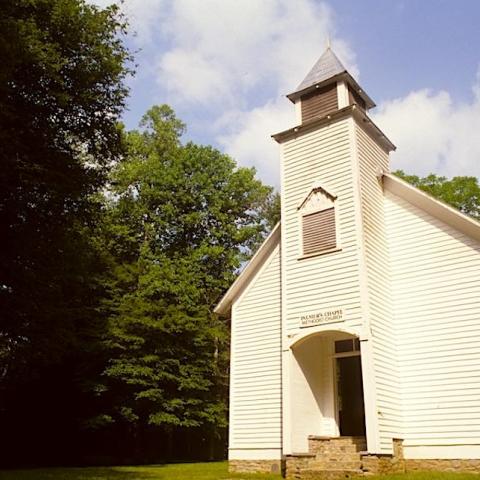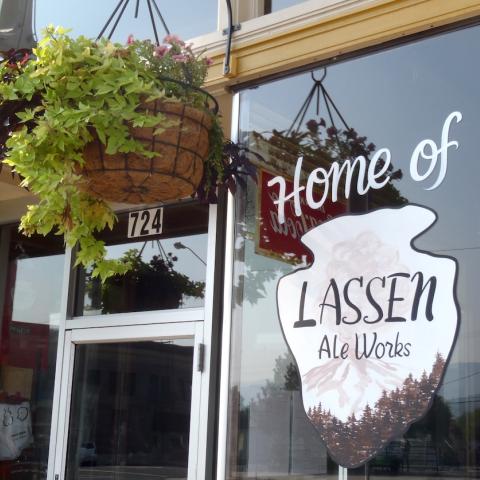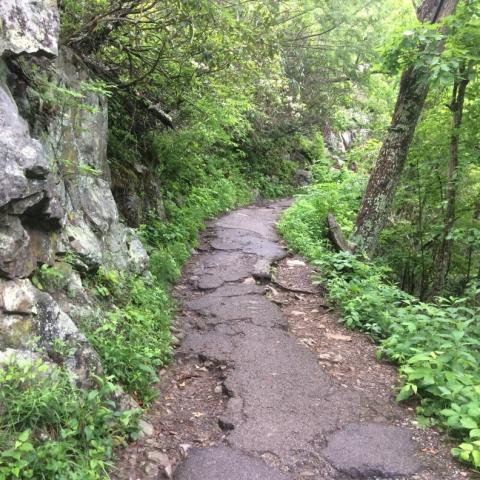A legal challenge to a backcountry user fee at Great Smoky Mountains National Park has failed, with a federal judge ruling the National Park Service was within its rights to levy the $4 per night per person fee.
Whether Southern Forest Watch will appeal the ruling hasn't been decided; the group was examining its options in the wake of the ruling Monday to grant the government summary judgment (attached below) in the case.
The challenge to the user fee, filed last summer, raised many issues. Among the charges was that the park staff concocted complaints about the existing backcountry reservation system, that minutes of public meetings were missing from the administrative record, and that some staff discussions of the matter were conducted on private, not government, email accounts. It also argued that federal regulations prohibited fees for backcountry campsites unless they come with "drinking water, access, road, refuse containers, toilet facilities ... (and) reasonable visitor protection," none of which exist, short of privies, in the park's backcountry.
More so, the lawsuit, contended that federal law prohibits the National Park Service at Great Smoky from charging "an entrance or standard amenity recreation fee ... unless fees are charged for entrance into that park on main highways and thoroughfares."
Southern Forest Watch also contended that "(A) 25 percent drop in backcountry camping (from 84,236 in 2012 to 62,863 the following year) since full implementation of this fee is dramatic evidence that this fee has impaired this generation's use of the Smoky Mountains ... "
Great Smoky officials maintained the fee was necessary to afford a better reservations system for backcountry campsites and to police the backcountry.
In his 59-page ruling, U.S. District Judge Thomas W. Phillips cast aside each point raised by Southern Forest Watch, at times saying the group's legal counsel didn't adequately buttress his arguments against the fee and the Park Service.
"Plaintiffs’ initial reply brief states that 'defendants’ pattern of consistent failure to follow the law in fulfilling their duties is the issue' with respect to these claims. This allegation does not state a valid claim for relief," the judge wrote at one point.
At another point Judge Phillips seemed to agree with Southern Forest Watch that a majority of the public did not support the implementation of the fee. Yet he also seemed to acknowledge the Park Service's longstanding position that public comment periods are not the equivalent of a vote on an issue.
"... the record contains evidence of substantial support for the BCF from the public, including GRSM employees. The support is not overwhelming, or even a majority of the responses received. Nevertheless, there is evidence of more than minimal support for the BCF proposal and 'support for the change' is all that the NPS public participation guidelines require," he wrote. "Neither the plaintiffs nor the defendants have provided any authority to suggest how such 'support' must be measured, nor has the Court found any. Accordingly, in the absence of any such guidance, the Court must reasonably interpret the guidelines as written and not 'substitute its judgment for that of the agency.'
"On this record and under the (Administrative Procedure Act's) narrow standard of review, the Court must conclude that the record does show 'support' for the BCF plan. Plaintiffs’ dispute of the characterization of the level of support does not mean that the facts themselves are in dispute."
The judge wrote that the passion in the case made it understandable to question whether the Park Service shouldn't have found a different solution for caring for the park's backcountry, but said that question was not one for him to answer.
"The plaintiffs and those opposed to the (backcountry fee) are understandably disappointed in (the park's decision to implement the fee) and could easily assume that defendants did not truly consider the public comments. After all, if so much of the public response was negative, how could the defendants have considered that input and still decided to proceed with the BCF?," he wrote. "Indeed, the passionate opposition to the BCF leads a reasonable mind to question whether another conclusion should have been reached, or why the Park management placed such emphasis on benefits for the 'less represented stakeholder group' rather than benefits for the frequent, local Park visitors.
"The legal question for this Court, however, is whether that decision was arbitrary or capricious."
In the end, he found, it was not.




 Support Essential Coverage of Essential Places
Support Essential Coverage of Essential Places







Comments
Or had no clue it was happening or how to respond. .
The number of public comments, JTHomas was over 1000. And the NPS tried to keep all 856 of the negative from the public by various tactics, not the least of which was an attempted economic rape. See for yourself. http://www.knoxnews.com/news/gosmokies/avid-smokies-hiker-seeks-access-t...
The public comment period was shortened as to disenfranchise negative input and discount users. Having attended one of the sham open house meetings, there was no mechanism for counting folks or capturing their comments at the open house. It consisted of the Superintendent Ditmanson walking around and doing a sell job on the fee along with his cronies, none of which are still at Great Smoky Mtns anymore.
Voter turnout for elections is what? way under 50% in many cases? Just because a large number remain silent does not mean they could care less. Right or wrong it seems a lot of folks just don't feel like their say has any bearing ( which is evident in this case as true). An even bigger percentage i would say simply didn't know how to respond or even knew about the fee at all. In fact there was not a great deal of press about this at local levels much less on a greater scale. Even the judge seemed to agree this was not handled as well as it could have been.
If you didn't live within 50 miles of the park you probably never heard anything about the proposed fee. I'm guessing a good number of backcountry users fall into that category. As to "the Smokies have been an exception to the rules" that is one of the reasons we fought this fee. I believe there may be more parks that don't charge than do, but what really bothers us is that we have always been told that the park would be "forever free" for residents of TN/NC because so many had to give up their land. We should have looked at the Cherokees and realized what the feral government's word is worth. We are not going away ...
The judge also stated in his ruling that the comment period wasn't a "popular vote". I guess, i'm the only one that must have read that. And it was part of his decision. He actually reflected on this point quite a bit. As i've already stated, if local decision making was a key part to how NPs were ran, there would be no NPs.
Gary - reading your comments reminded me that you were going to discredit the claim of private trails cut by Bberry Farms via personal inspection, GPS, etc.. Did you make it out there? Curious what you found.
Kudos to NPS and the judge on this ruling. Those who use should pay for the privilege (NOT a right). Complaining about $4/night? Please!